Grade appeal process
Formal policy
1.0 Basic criteria and grounds for appeal
1.1
Instructors are expected to evaluate student work according to sound academic standards. Course expectations should be clearly specified and grades should be assigned without departing substantially from announced procedures.
It is the instructor's prerogative to assign grades in accordance with his/her academic/professional judgment, and the student assumes the burden of proof in the appeals process.
1.2
Grounds for appeals are:
(a) the application of non-academic criteria in the grading process, as listed in the university's nondiscrimination/affirmative action statute: race, color, sex (including gender identity), national origin, religion, age, sexual orientation, familial status, marital status, height, weight, disability, or veteran status;
(b) sexual harassment or discrimination; or
(c) evaluation of student work by criteria not directly reflective of performance relative to course requirements.
1.3
These policy guidelines do not apply to allegations of academic dishonesty. Academic dishonesty matters should be addressed under the Student Code of Conduct.
2.0 Appeal process for grades
2.1
Whenever a final grade is in dispute, a student should first appeal to his/her instructor for an informal review. In practice, this means that the student makes an appointment to talk with the instructor to express his or her concerns about the assigned grade. Should resolution fail, the student may request a formal review.
2.2
Students should raise formal grade appeals within thirty (30) calendar days following official notification of grades for the term in which the disputed grade was awarded, whenever informal review fails to resolve a dispute. The student's first formal appeal should be directed to the instructor. Formal appeals must be in writing and contain detailed reasons for the appeal, as well as optional supporting documentary evidence. Formal appeals may be done in hard copy or by email. Formal appeals are limited to the grounds stated in 1.2 above.
2.3
Instructors shall respond in writing to a formal written appeal within ten (10) business days of receiving the appeal. If the issue is unresolved, the student may within ten (10) business days lodge an appeal in writing with the department chairperson or program director.
2.4
Students shall be notified in writing of the department's/program's decision regarding the appeal within thirty (30) calendar days of its receipt. The student may also request an informal meeting with the program director or chairperson, but this does not replace the formal appeal.
Within this time period, the chairperson or director may seek the advice of a grade appeals committee, if so established. Departments or programs that conduct a committee review must specify the authority of the committee in their grade appeals policy. The instructor in charge shall be invited by the department chairperson or program director to reply in writing to the objections of the student.
2.5
Students who are dissatisfied with the department/program decision as stated in writing may lodge a formal written appeal with the dean of the college or the designated associate dean within ten (10) business days of having received the department/program decision, with a copy to the department chairperson or program director. The student shall submit a copy of the written statement initially submitted to the department chairperson, his/her response, as well as a statement explaining his/her dissatisfaction with the departmental or program solution(s) proposed. Additionally, the student may submit any other documentary evidence he or she believes is relevant to the appeal. The formal appeal may be in hard copy or by email.
2.6
Students shall be notified in writing of the college's decision regarding the appeal within thirty (30) calendar days of its receipt.
2.7
Any meetings held in relation to the appeal shall provide parties the opportunity to present additional information orally or in writing. No additional persons should be permitted at such meetings without advance approval by the chair or dean, as appropriate.
2.8
Students/faculty may contact the Ombuds Services at any time for assistance with any problem associated with a grade decision or grade appeal.
3.0 University-level academic appeals procedure
When the appeal procedures within the college have been exhausted, the student may request the provost or his/her designee to review the decision on the record. Procedures for requesting a provost-level review are published in the university bulletin.
Chart

Informal grade appeal
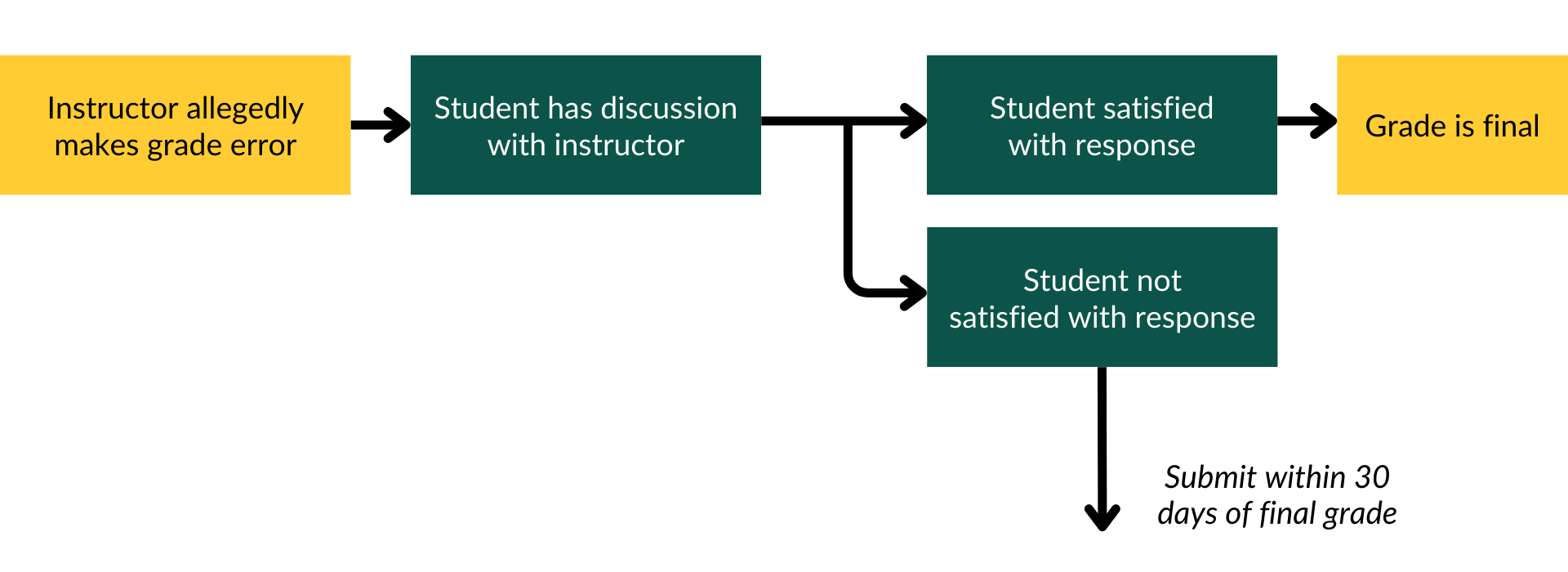
Formal grade appeal
Formal appeal can only be made on grounds of (a) use of non-academic criteria in grading, (b) sexual harassment or assault and (c) evaluation of material not directly related to course.
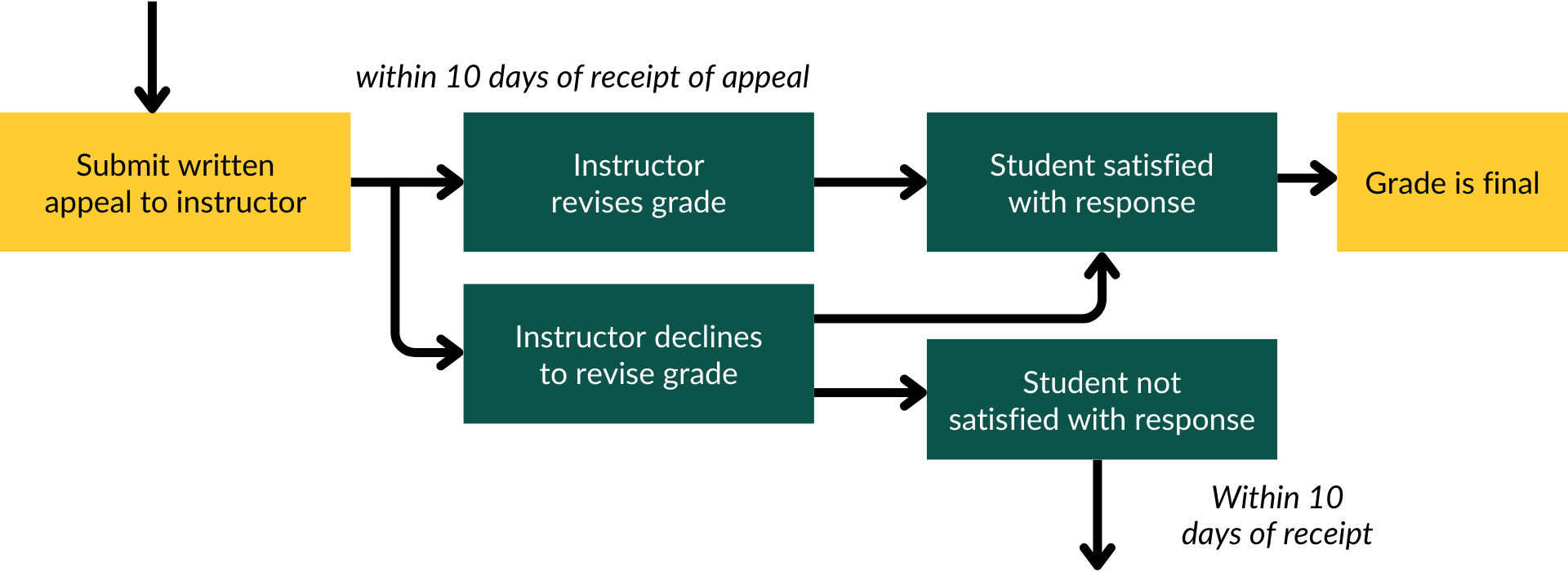
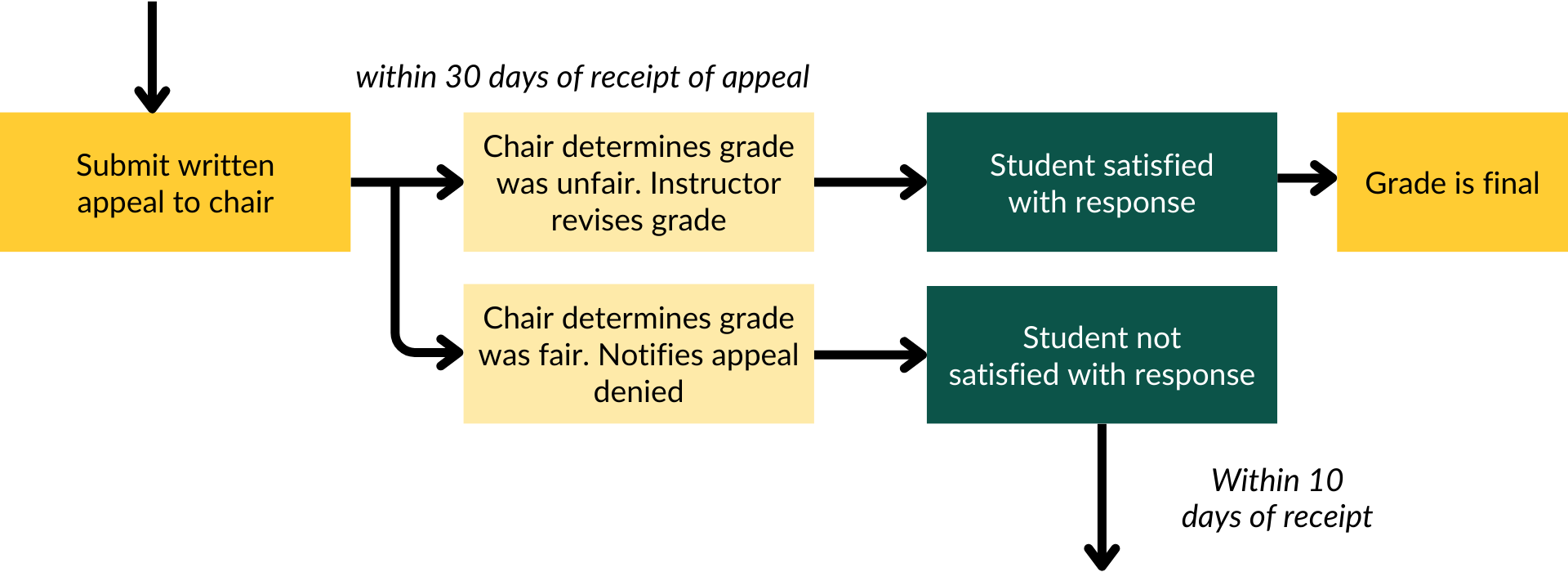
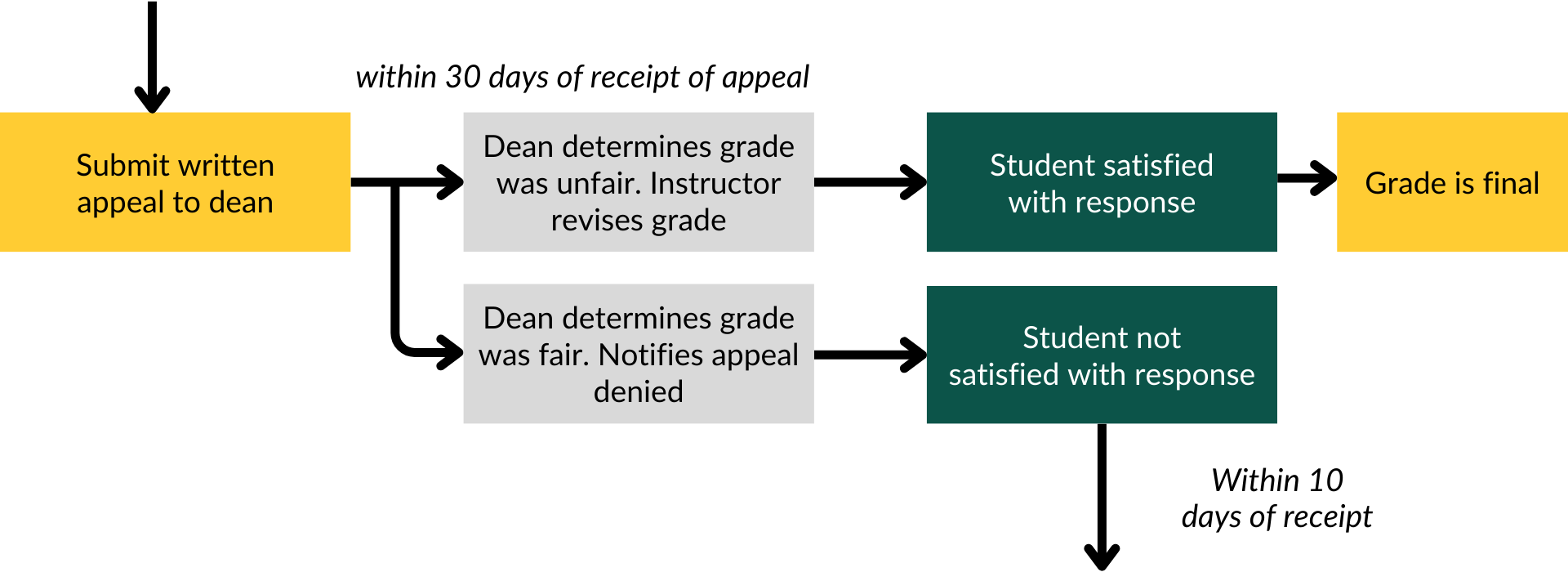
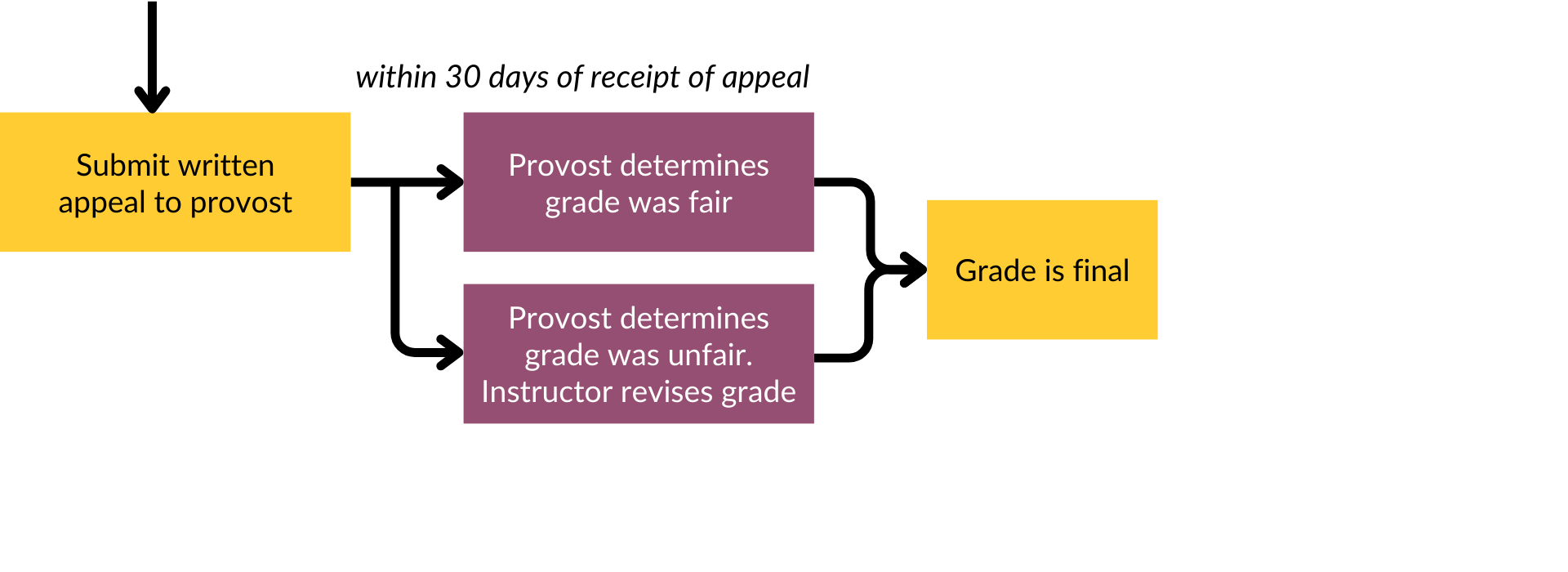
Revised September 2023. Download chart.